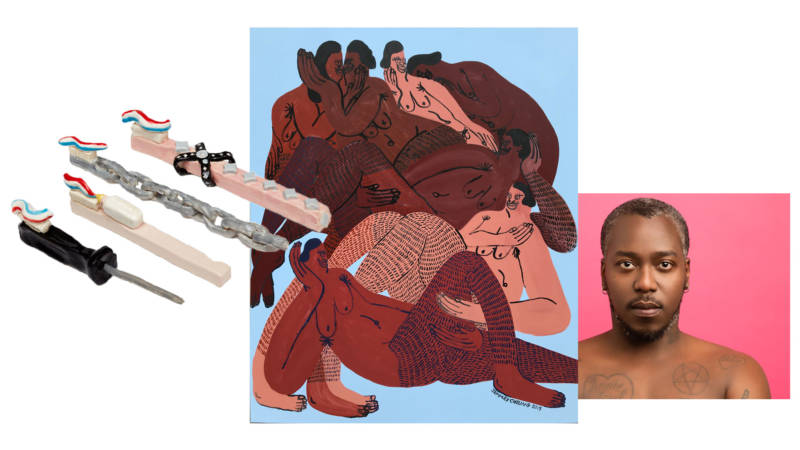Oakland used to be the sort of city where two young, queer boys from Arizona and Alabama—incidentally also pen pals—could pack up and move. Once there, they’d make music, art and friends.
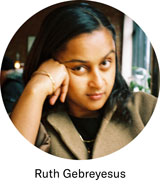
Artists Seth Bogart, raised in Arizona, and Brontez Purnell, Alabamian by birth, met on the message board of record label Kill Rock Stars and struck up a correspondence, mailing each other letters from their respective conservative home states. In the late 90s, Bogart moved to Oakland and in 2002, Purnell followed suit, soon joining Bogart’s electro-punk band Gravy Train!!!! About a decade later, Purnell met Jeff Cheung, who grew up in the East Bay, when Cheung performed with his own band Meat Market at the West Oakland warehouse where Purnell lived. (Purnell and Brontez were well known to Cheung; when the younger artist was in high school, he saw Gravy Train!!!! perform at San Francisco’s Bottom of the Hill.)
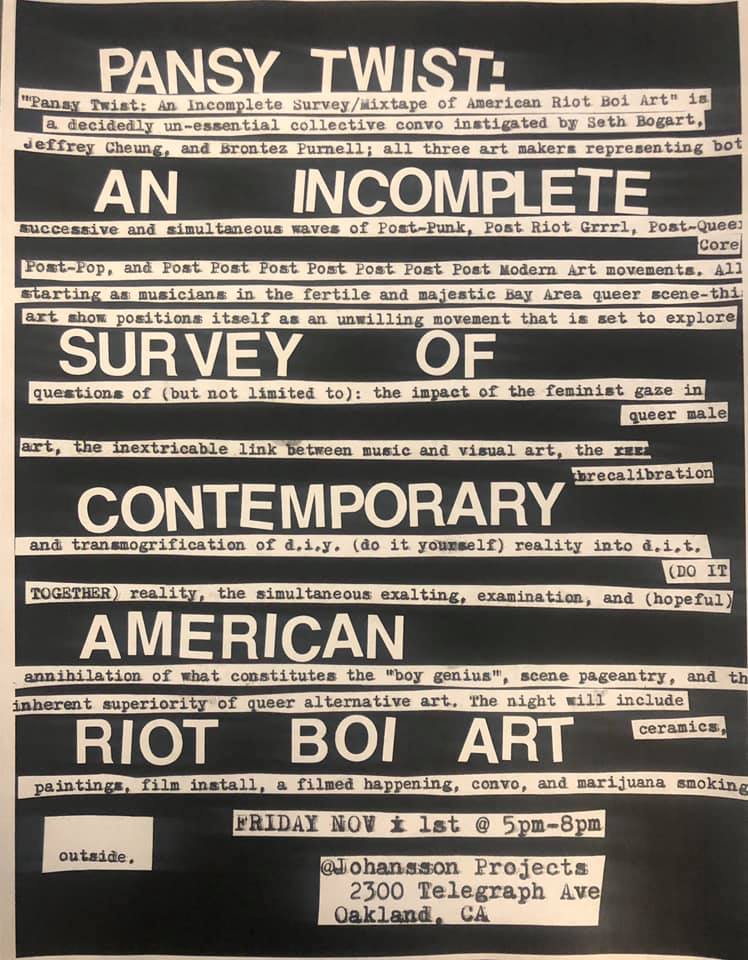
This Friday all three multidisciplinary artists will show print, film and sculpture works at Oakland’s Johansson Projects under the banner Pansy Twist: An Incomplete Survey/Mixtape of Contemporary Riot Boi Art.
“I don’t know too many places that have this many [queer] rockers who also share in community and whose voices are distinctly in conversation with each other,” Purnell says of the city that brought the three of them together.
“It was kind of a different place back then,” Bogart tells me over the phone from Los Angeles, his home base since 2011. “It was a lot more affordable and you could have a $300 rent if you lived with people.”
Today, it’s hard to say if Oakland is the sort of place that offers the same possibilities of community and convergence it did even just five years ago. What connections have forged in the waves of new residents recently arrived to town? How much has been lost along with those who were priced out of their homes? When did this attrition start? Such questions loom large for those invested in Oakland’s cultural identity—but on Friday night, the focus will be on the lovingly entangled webs Bogart, Purnell and Cheung have spun.
Since their respective arrivals to Oakland, Bogart and Purnell have forged careers in music and art, making waves far beyond the Bay Area. Alongside his ongoing musical project, Hunx and His Punx, Bogart’s artwork and multimedia performances have been featured in solo and group shows at galleries and museums in New York, Chicago and Detroit. Through his label Wacky Wacko, Bogart also releases bright, mischievous ceramics and clothes; he collaborated with Cheung in 2018 on a button-up shirt patterned with Cheung’s signature nudes.
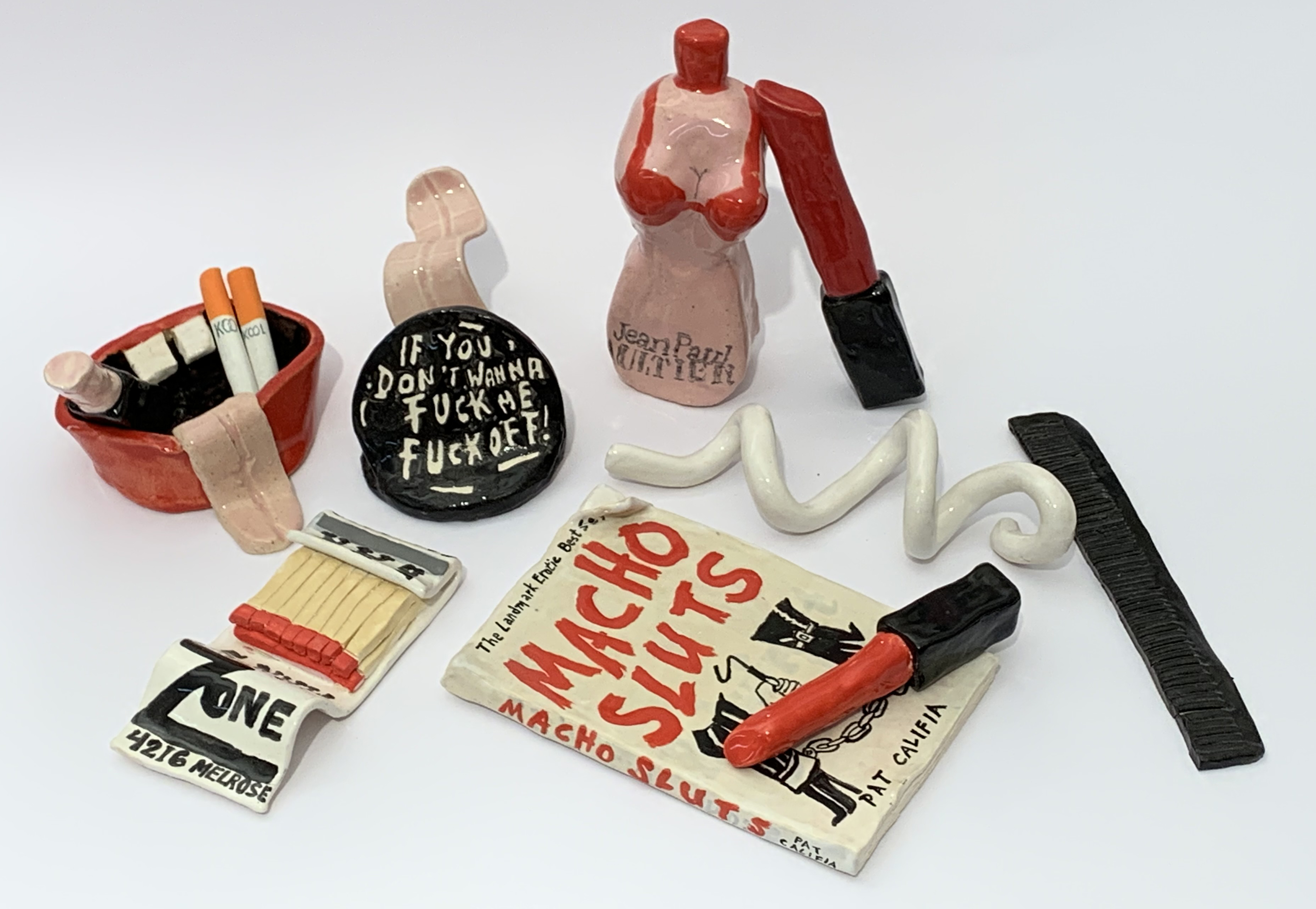
Hopping from one medium to the next came naturally to Bogart. “I started making clothes based on making merchandise for my band as a way to make extra money so I could quit my job,” he says. “I’m very thankful that I can move from one thing to another because sometimes, one of those things will really suck.”
Like Bogart, Purnell’s artistic expression crosses from one format to another. In 2017, he published his debut novel, Since I Laid My Burden Down, which went on to win the Whiting Prize for notable emerging writers. That same year his eponymous dance company debuted Chronic: A Dance about Marijuana at a festival held by Bill T. Jones’s New York Live Arts. The show later played in Hamburg and made its Oakland debut earlier this month at Eternal Now, a psychedelic variety show that, full disclaimer, this writer helped produce. (Shortly after that performance, Purnell declared “Oakland is back!” Though there’s an argument to whether the city is truly “back,” I won’t dispute the relative dormancy of its arts scene.)
These days, heightened safety measures and scarcity of space have shepherded in a new era in the Oakland underground scene. Meeting a kindred spirit at a warehouse venue is far less likely. Some gatherings have moved to formal spaces with security guards, lines and permits, while others are held outdoors, preserving the impermanence and fugitivity of the underground.
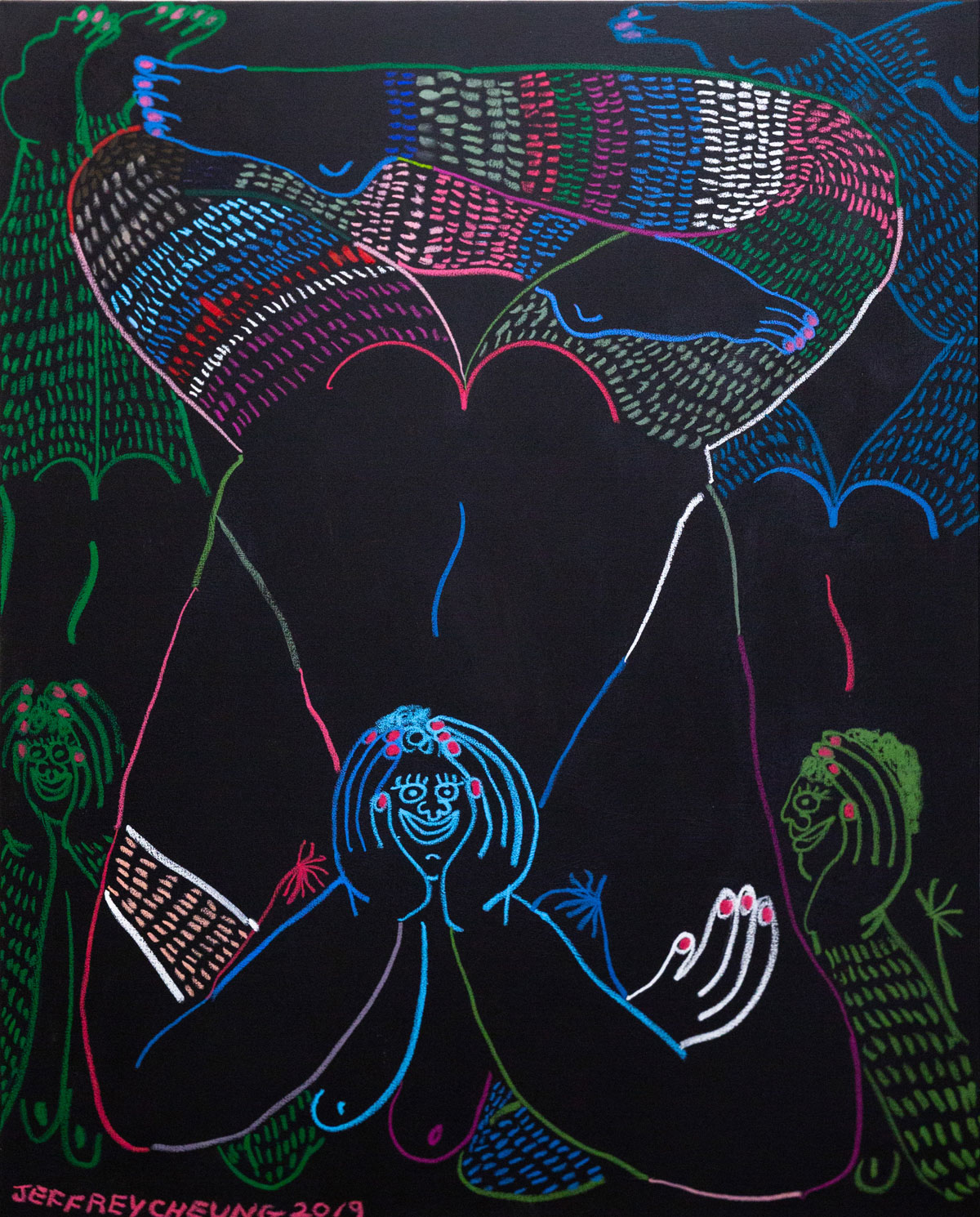
At the Rockridge BART parking lot, for example, you might now find Cheung and Gabriel Ramirez’s Unity Skate meetups which, along with Unity Press, center accessible learning and joy for queer and trans folks. Cheung credits a free printmaking class led by Katie Gilmartin at San Francisco’s SOMArts as an inspiration for the work he does now with Unity.
“There were a lot of different creative scenes and spaces that I think were really inspiring to me, and felt like I could really express myself how I wanted,” he says of growing up in Oakland and taking classes in San Francisco. “Being around other young queer folks and having the resources to learn printmaking for free was amazing. I feel like these types of resources and spaces are harder to find in the Bay and are even more important to have.”
In his solo work as an artist, Cheung paints canvases of nude figures, tender and impish and always finished with a wink. His paintings have been included in shows both nationally and internationally. For Cheung, even these moments of individual recognition are opportunities to build community: His exhibitions never seem to pass without a Unity Skate meetup and skateboard giveaway.
